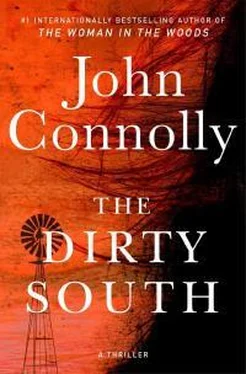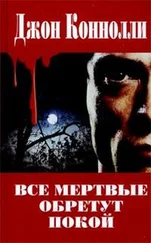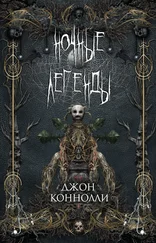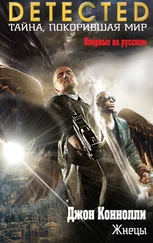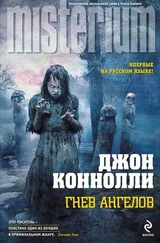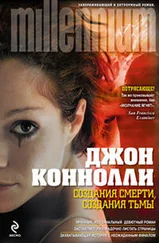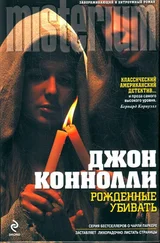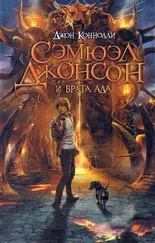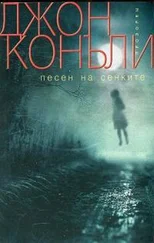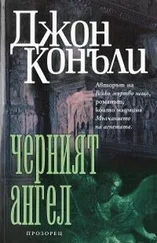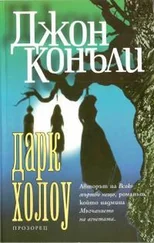But Parker did not want to leave, not yet. He experienced a familiar, unsettling sense of dislocation. The traffic sounded wrong to him, as though heard through fog. The light was smoked in sepia, the smell of the sea now heavy with decay.
And his dead child had come.
Parker recalled the night his mother passed away. He had been sitting with her at the hospital before returning to the house in Scarborough that they shared with his grandfather, and in which they had lived together since the death of Parker’s father. His mother was sleeping when he arrived, and sleeping when he left, neither speaking nor moving for the duration of his visit. It was dusk as he departed, and he remembered thinking that the world appeared oddly skewed, its angles and the disposition of its structures no longer true, so that he had to concentrate hard on his driving for fear he might sideswipe another vehicle, or mount the curb while turning. He had made himself a sandwich in the kitchen with some leftover beef, and poured a glass of milk. He ate just a few bites of the sandwich, and then out of necessity rather than appetite. The pleasure had disappeared from food as soon as his mother entered the hospital; now he, like she, survived largely on fluids. His grandfather was dozing in an armchair by the living room window, and had not heard him return. He did not wake the old man, who needed his rest. Those on a deathwatch do not sleep well.
When the call came shortly before midnight, summoning his grandfather and him to the hospital because his mother’s time was running short, he was not surprised. He had known it was near, even as he held her hand earlier that evening. He could see it in her face, hear it in her breathing, and smell it on her skin and breath as he kissed her goodbye. She seemed to be growing smaller in the bed, her life essence evanescing, diminishing her as it went, and in her withering she exuded a chemical rot.
She was dead by the time they reached the hospital. He thought she might already have been dead when the nurse called, or close enough to make no difference, and the woman had decided not to break the news over the phone, but instead let them remain a father and a son for just a little longer. His mother was still warm when they arrived, and he and his grandfather each held one of her hands until she grew cold.
At the time, Parker was seeing a girl from Scarborough named Kathryn, and while his grandfather spoke with a doctor in the corridor, he found a pay phone and used it to call her. Kathryn answered on the third ring, even though he’d expected her father to pick up at that time of night. She told him that she hadn’t been able to sleep, but couldn’t understand why. She’d been sitting on the stairs when the phone rang.
He had always loved her for that. Sometimes, he thought, a person could intuit.
Like now.
He decided not to linger, leaving the sand and the footprints behind. Perhaps he wasn’t the only one to have sensed the approach of wrongness. Whatever trouble was circling had also drawn his daughter, come to see what might be brewing, come to protect him. Vehicles passed him on the road, but all were unfamiliar, and he recognized none of the faces behind the wheel.
He reached the house. The external security light clicked on as he neared the front door, but he headed round the side to enter from the kitchen. He had grown into the habit of using this entrance because the house often felt too big, too empty, when he came in through the hall. Even the attempt on his life that had almost killed him – the shooters approaching from the trees, using the darkness as cover – had not caused him to alter this routine, although the additional safety systems installed in the aftermath of the attack probably contributed to a certain peace of mind, however belated it might be.
He placed his book on the kitchen table, turned on a lamp, and sat. He followed the movements of the sun as it altered the pattern of light on the salt marshes, and listened to WBQA, Maine Public Classical. Eventually he resumed his reading, and when the phone rang he was almost grateful, because he sensed that the source of the shadow was about to reveal itself at last. He picked up and a voice, unchanged, spoke to him from down the years.
‘Mr Parker?’
‘Yes.’
‘This is—’
‘I know. It’s been a long time.’
‘It has. I hoped we’d never have to speak of this again. I’m sure you felt the same way.’
Parker did not reply, and so the man continued.
‘I thought you should know,’ he said. ‘They pulled a body from the Karagol.’
The past shadows us.
The past defines us.
In the end, the past claims us all.
THEN
2
The Karagol was both lake and stream, the former temporarily consuming the latter, although the outlet stream was a feeble, shallow extrusion that soon became lost in mud and marsh, as though to hide itself in shame. Unlike so many bodies of water in the region, the Karagol took its name not from any indigenous tongue, nor from the homeland of some European settler, but from a combination of Greek mythology and Turkish geography: the mountain lake of Karagöl, in Izmir, was associated with the myth of Tantalus – Tantalus the cannibal, the filicide, the thief – whom the gods punished for his crimes by forcing him to stand in a pool of water from which he could never drink, sheltered by a tree, the fruit of which he could never eat, and threatened by a massive boulder that hung forever over his head.
The literal translation of karagöl , in its Turkish form, was ‘black lake’, an appellation with which few who looked upon its Arkansas incarnation were likely to take issue. It seemed to consume light, and was one of the few watering holes given a wide berth by local children, even in the worst heat of summer. Occasionally, some boy would dare another to dive into it, or attempt to submerge himself beneath its surface for a count of ten, but the wiser ones refused to accept the challenge, and the dumber came to regret their decision. The lake was always cold, the kind of algor that penetrated skin and flesh to take up residence deep in bone and joint, so that even a brief immersion was enough to set a person to aching for days after. Its color was a result of the dissolution of organic matter from the Ouachita Forest, rendering the water heavily acidic, although those schooled in such matters declared that it should by rights have been deep brown, not black, but could not explain the disparity, for the little stream that ran from it grew lighter the farther it flowed from its origins.
The Karagol, then, resembled less a lake than an oil spill, an impression given greater force by the viscosity of its contents, which clung to the limbs of anyone unfortunate enough to come into contact with it, as though the waters, having lured at last a warm body, were reluctant to release it again. Nothing lived in its depths, or no entity worthy of the description. A professor from the University of Arkansas – Go Razorbacks! – had traveled to the Ouachita some years earlier to study the lake, and claimed to have discovered in it a form of algae worthy of further investigation. The academic spent a week immersing himself in the Karagol, sometimes wading as deep as his chest, despite local injunctions to seek an alternative means of making his name in scientific circles. He subsequently fell sick from septicemia and died, and nobody from the university ever felt compelled to go paddling in the Karagol again.
Technically, the Karagol and its surrounds weren’t actually part of the Ouachita National Forest, or the Arkansas National Forest as was, dating back to the Louisiana Purchase. It stood at the forest’s southeastern boundary, but for some reason – either an administrative error, or some quirk of Roosevelt, Coolidge, or Hoover – it failed to make the grade as a succession of executive orders created, and then extended, the preserve. Perhaps, as more than one Arkansas native had suggested over the years, someone from Washington had taken the time to view the Karagol and decided, quite sensibly, that the US government had better things to do with its money than protect what looked like nature’s own cesspool.
Читать дальше
